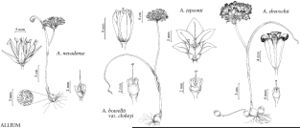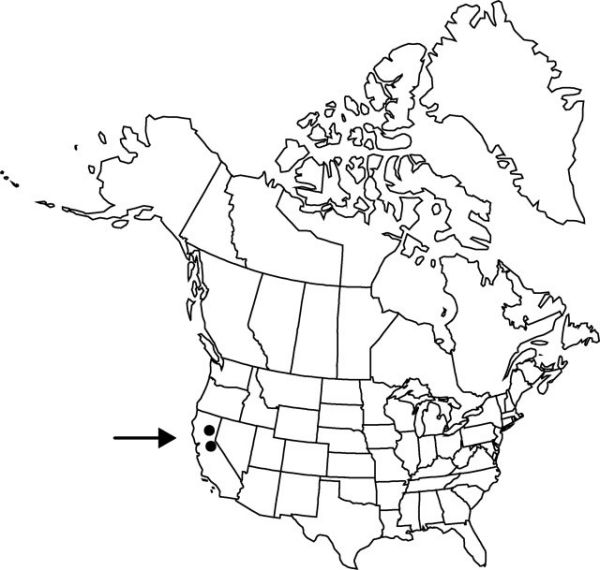Allium jepsonii
Madroño 36: 127. 1989.
Bulbs 1–2, not clustered on stout, primary rhizome, ovoid to subglobose, 1.5–2.5 × 1–2 cm; outer coats enclosing single bulb, gray-brown, membranous, lacking cellular reticulation or cells arranged in only 2–3 rows distal to roots, ± quadrate, without fibers; inner coats light brown or white, cells obscure, quadrate. Leaves persistent, withering from tip by anthesis, 1, basally sheathing, sheath not extending much above soil surface; blade solid, terete, 22–42 cm × 1–4 mm. Scape persistent, solitary, erect, solid, terete, 25–37 cm × 1–3 mm. Umbel persistent, erect, ± compact, 20–60-flowered, hemispheric, bulbils unknown; spathe bracts persistent, 3–4, 4–5-veined, ovate, ± equal, apex long-acuminate. Flowers campanulate, 7–8.5 mm; tepals erect, white, flushed with pink near dark pink midveins, ovate-elliptic, ± equal, becoming papery in fruit, margins erose, apex acute to apiculate, outer tepals with reflexed tips; stamens included; anthers yellow; pollen yellow; ovary crested; processes 6, prominent, ± triangular, margins erose; style linear, equaling stamens; stigma capitate, 3-lobed, lobes slender, recurved; pedicel 7–20 mm. Seed coat dull or shining; cells minutely roughened. 2n = 14.
Phenology: Flowering late May–early Jul.
Habitat: Clay soils, including serpentine
Elevation: 300–600 m
Discussion
Of conservation concern.
Allium jepsonii is disjunct in the foothills of the Sierra Nevada.
Selected References
None.

